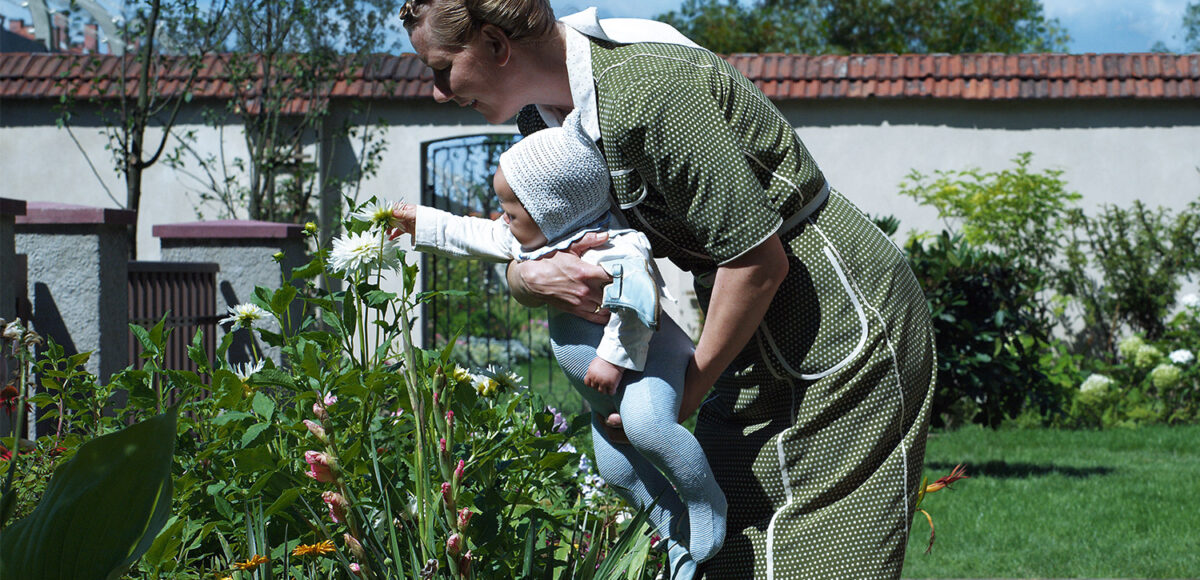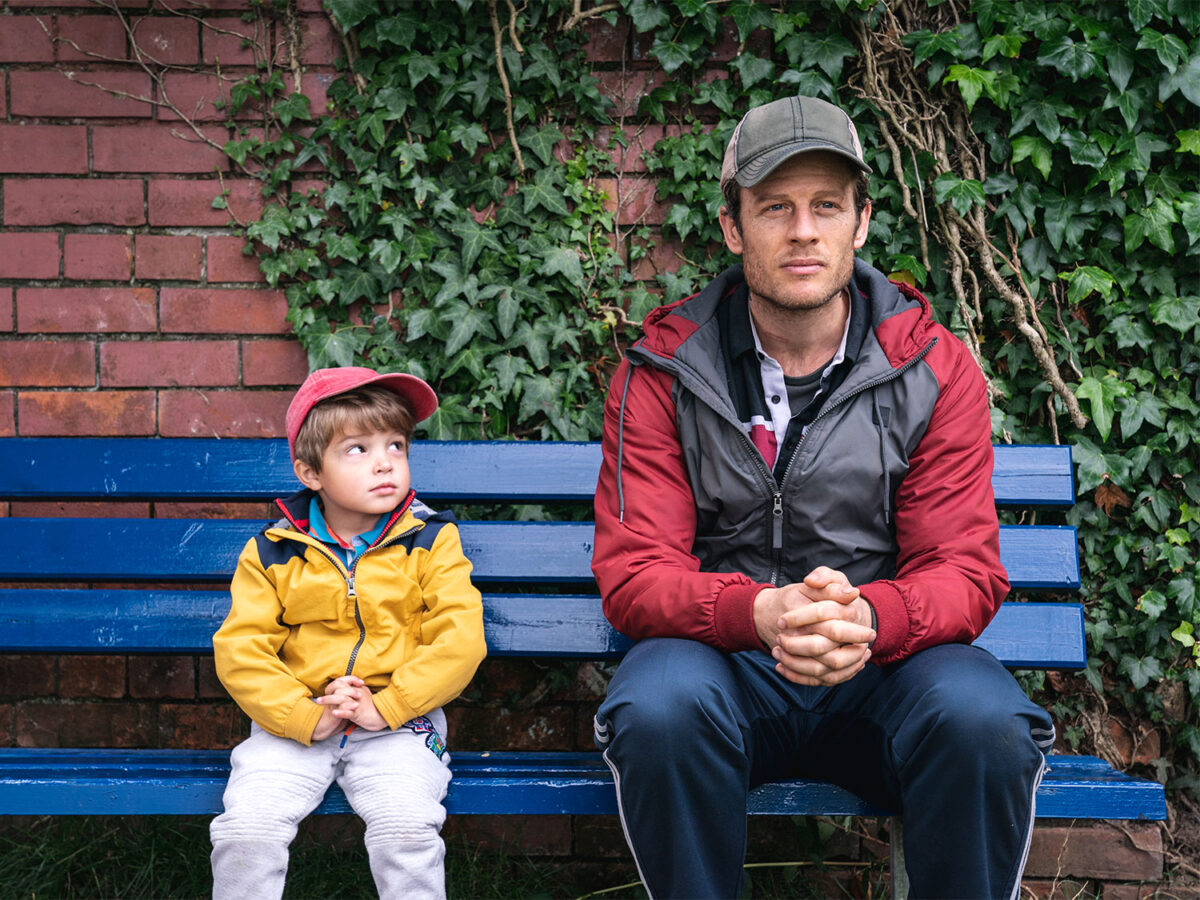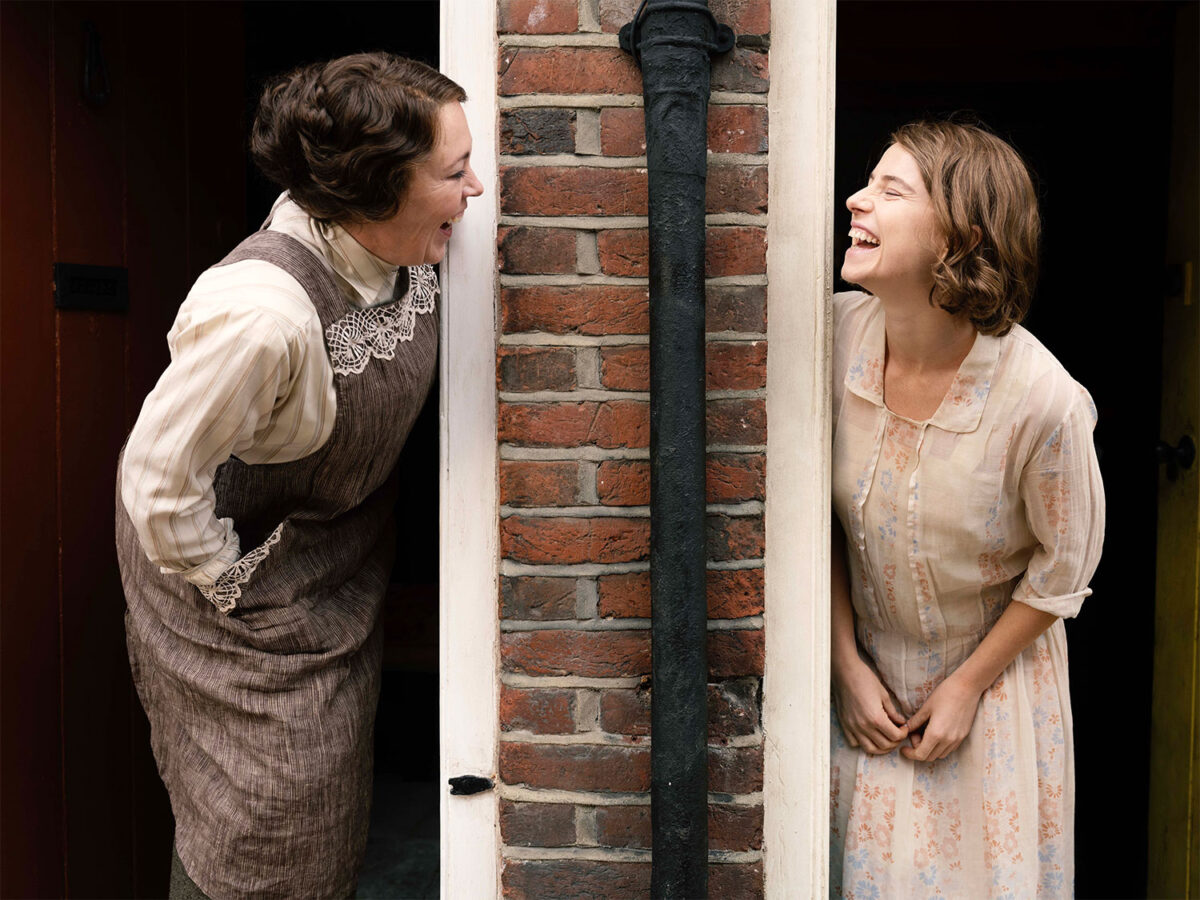I am the child, grandchild and cousin of Holocaust survivors. It colors so much of what I think about the world and the people who inhabit it. It’s why I’m hopeful; it’s why I’m despondent.
Jonathan Glazer’s new film, loosely based on the Martin Amis novel of the same name, more closely hews to the imagined reality of the actual individuals who inhabited “the zone of interest,” the 40 square kilometer area surrounding the Auschwitz concentration camp in Poland.
Rudolph Höss, the most successful, and I use that word ironically, commandant of Auschwitz, was, in all likelihood, personally responsible for more murders than any other individual in the Third Reich. “The Zone of Interest,” written and directed by Jonathan Glazer, opens on the bucolic scene of a family picnicking and swimming at a lush green waterside. Heading back, they forage for berries and enjoy the fresh air, painting the seemingly idyllic life outside the walls of the camp where Höss lived with his wife and five children.
Wife Hedwig creates an Eden for all of them in their lovely two-story Germanic chalet with multiple bedrooms to accommodate their five children, idyllic gardens, both decorative and practical, cooks who deliver delicious meals and servants who clean up every speck of dirt dropped inadvertently on the floor. Every day, they wake up to a served breakfast, children dressed in their Aryan best, coffee hot as they send off the paterfamilias to his job at the camp on his favorite chestnut steed. Another day at the office.
Hedwig, deliriously happy in this homestead, is unperturbed by anything outside the boundary of their home. She tends to the garden, has tea with friends and looks in on her baby. She takes note of nothing beyond her garden wall where giant smoke stacks are spewing smoke and sometimes fire 24 hours a day. She generously allows the servants to choose one item from among the silken contraband taken from anonymous souls arriving on “the other side of the wall,” always keeping the best for herself. Frumpy she may be in her typical German hausfrau dresses and sensible brown shoes, but she is the proud owner of a full-length mink in need of cleaning and a few minor repairs. God is good to her and her family.
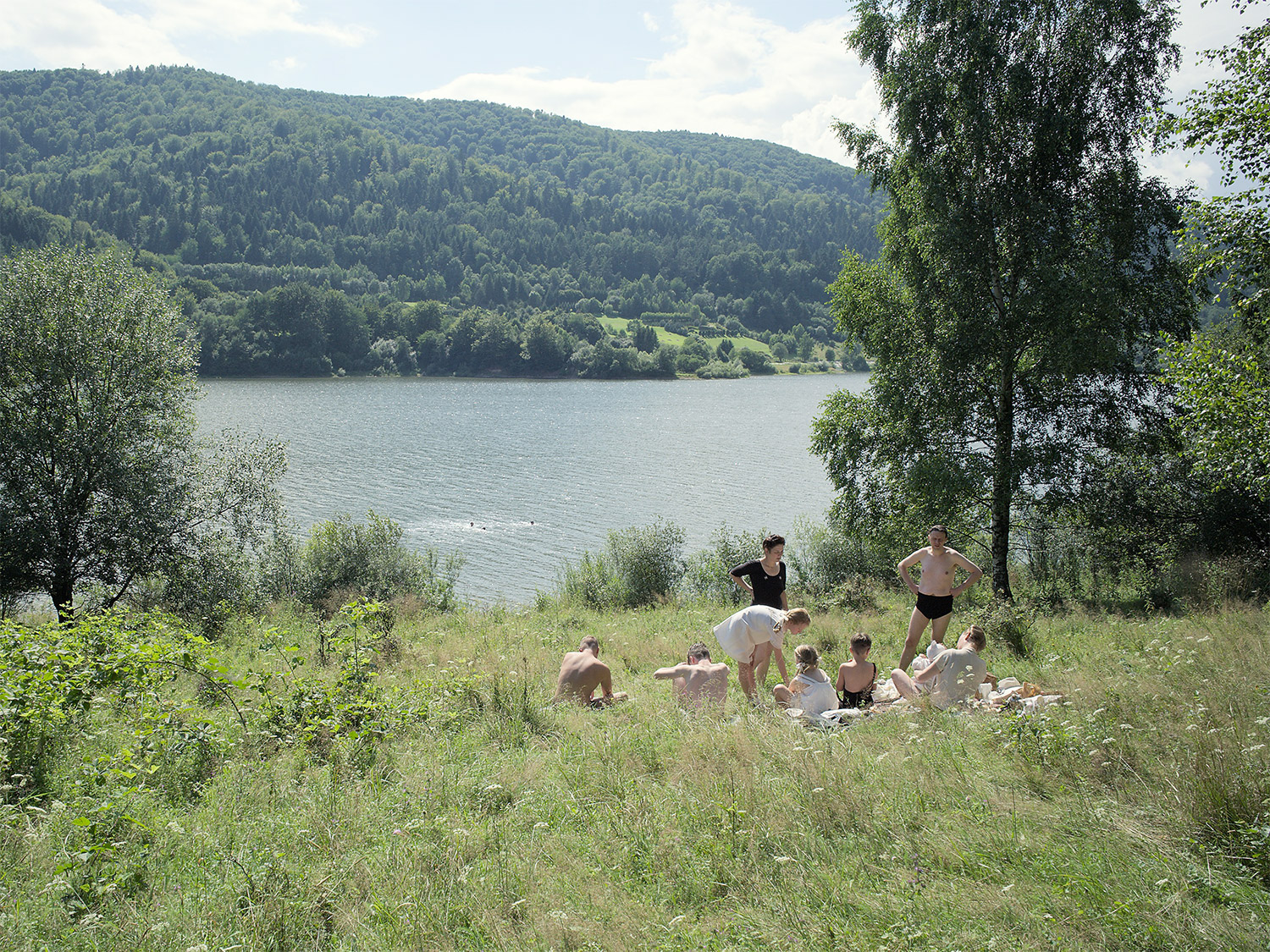
Photos courtesy of A24
Hedwig is especially pleased when her mother comes for a visit. She can only offer her a shared bedroom with one of the children but other luxuries await. Mother, impressed, is a bit curious about the surroundings, wondering if her old employer is ensconced in the camp, the rich Jewess for whom she worked as a maid. Oh, Hedwig replies blithely, she’d be on “the other side of the wall.” Mother remarked that she had bid on the woman’s curtains when she was taken away. She had really loved those curtains. Are any of the servants Jews, she wonders? Oh, no! All the Jews are on “the other side of the wall.” There is no point in giving “the other side of the wall” much thought even as the smoke stacks keep firing and the ash settles in the opposite direction.
Rudolph has news that he’s reluctant to tell his wife. He has just been promoted to Inspector General of all camps but must move to the Berlin area. She reacts, as he knew she would, badly, arranging for a compromise whereby he can go to Berlin but they will stay in their glorious house, one they will not be able to duplicate elsewhere. How can he possibly make them suffer? Has he no empathy? No pity? At the root, however, for this daughter of the serving class, is also the fear of Berlin society and how she will be marginalized. In Auschwitz she is a queen, commanding all around her. How can he ask her to give up picnics at the riverside, swimming in their pool, parties catered by their own servants? If he is incapable of appealing to the Fürher himself to allow him to stay, then he must find a way for her and the children to remain.
Rudolph, a prisoner of his own success, cannot turn down a promotion based on the skill he has exercised in the efficient gassing of the prisoners “on the other side of the wall.” One moment he is celebrating his birthday with family and subordinates and the next, sitting at his dining table, he is discussing the engineering of a more efficient crematorium with two contractors. It was, no doubt, after a dinner of schnitzel and apple strüdel that his idea to use the pesticide Zyklon B as a more efficient gassing agent came to him. Hedwig, uninterested in such things that don’t involve her or anyone she knows, is more concerned with her garden. Still, out of sorts because of the impending change, she becomes surly, threatening a servant who has not wiped up a spot quickly enough. “You know,” she says to the girl. “I can have my husband take care of you and scatter your ashes in my garden.” These are the trials and tribulations of a woman managing a household on the new eastern frontier. That he will leave and eventually return with a new mandate, the execution of the recently deported Jewish population of Hungary, underscores the matter-of-fact nature to these horrors and Hedwig’s continued indifference.
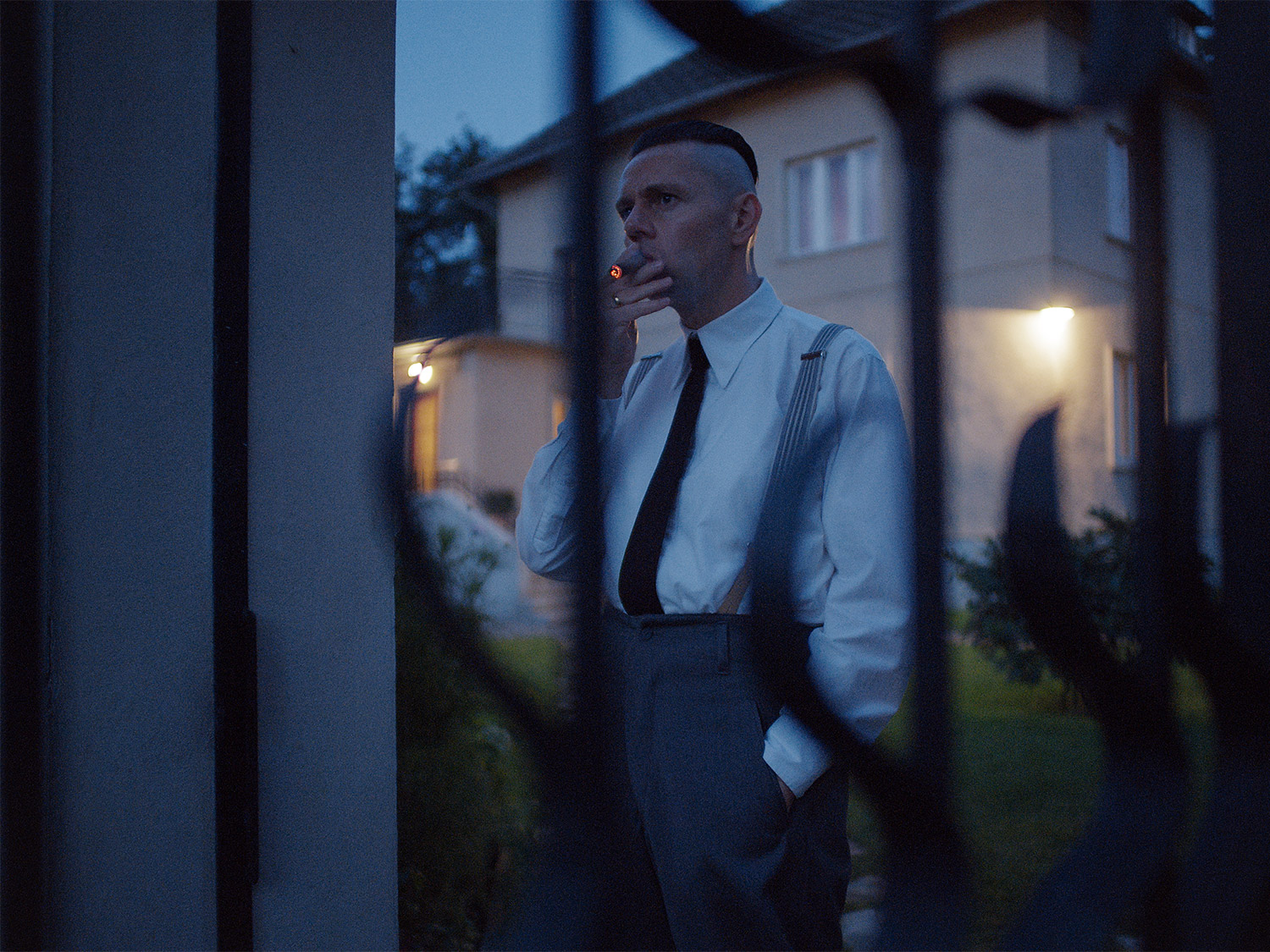
The banality of evil, erroneously used to describe Adolph Eichmann, is exactly what is in play in “The Zone of Interest.” As death swirls around them, the Höss family has more important things to think about. Is son Klaus’ Hitler Youth uniform properly pressed? Will the baby stop crying? And who is dragging mud into the foyer? Are there enough layers to the birthday cake? The cozy domesticity of the family is an effective mask for the outside reality.
What, Glazer posits in this outstanding and chilling film, can be viewed as normal? How much can humans absorb and/or ignore? How, we have asked repeatedly over millennia, is it possible to completely dehumanize a people so that their suffering and extermination are routine happenstance? And why do we keep doing it? When will we become “the other” and when will they come for us?
Much of this story was actually filmed adjacent to Auschwitz, lending an even greater sense of chilling authenticity. As a UNESCO heritage site, nothing could be changed on the actual property, so production designer Chris Oddy recreated what the house and the camp would have looked like when it was new, 80 years ago. Cinematographer Lukasz Źal, instructed by Glazer to go for an improvisational feeling, filmed from a bunker, tracking the actors in long, continuous shots. In reshooting scenes, continuity was abandoned in favor of a feeling of spontaneity.
But this Grand Prize winner at Cannes in 2023 would not be the film it is without the two lead actors—Christian Friedel as Rudolf Höss and Sandra Hüller as Hedwig. A theater-trained actor, Friedel has found a chilling monotony to his character’s daily routine and acceptance of the doctrine he follows day in and day out. This is a man who will be at Eichmann’s right hand as they implement the “Final Solution,” a code so exacting that, in the end, Höss will have been responsible for the execution of 1.5 million souls. Just a typical day at the office.
Sandra Hüller, so outstanding and unnerving in “Anatomy of a Fall,” the winner of the 2023 Cannes Palme d’Or, is almost unrecognizable as a German hausfrau frumpily dressed, pin-curled hair, downturned mouth and rigid posture. Her lack of empathy is a natural part of her personality, furrowing her brow over poorly roasted potatoes and cake that doesn’t meet her standards. There is no “other side of the wall” for her, only her side, chillingly dismissing what she doesn’t acknowledge.
Just another Holocaust movie? I think not. The dismissal of “the other” has been ongoing for centuries and continues today, perhaps not the gassing and burning, but definitely the deliberate indifference to cruelty and death of those who are not us. The more things change, the more they remain the same. I am despondent.
In German with English subtitles.
Opening December 15 at the AMC Century City.
Neely Swanson spent most of her professional career in the television industry, almost all of it working for David E. Kelley. In her last full-time position as Executive Vice President of Development, she reviewed writer submissions and targeted content for adaptation. As she has often said, she did book reports for a living. For several years she was a freelance writer for “Written By,” the magazine of the WGA West, and was adjunct faculty at USC in the writing division of the School of Cinematic Arts. Neely has been writing film and television reviews for the “Easy Reader” for more than 10 years. Her past reviews can be read on Rotten Tomatoes where she is a tomato-approved critic.



